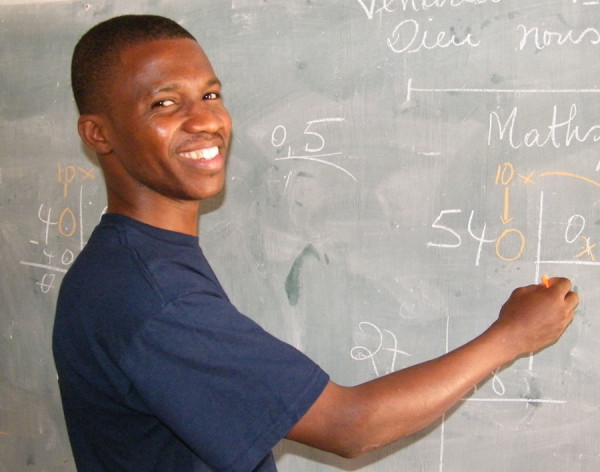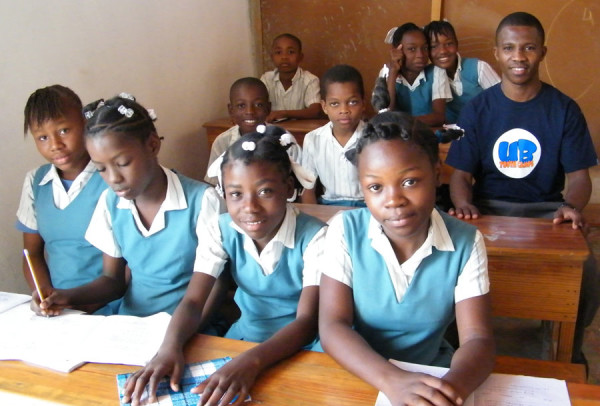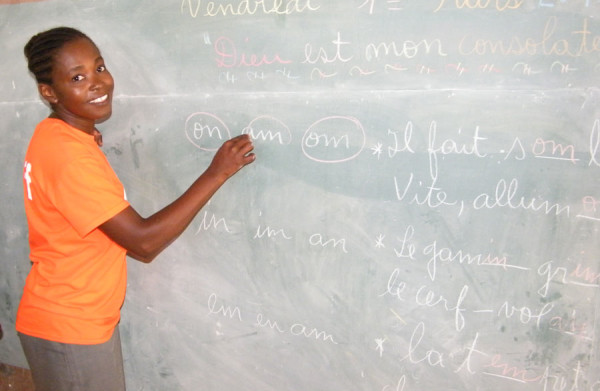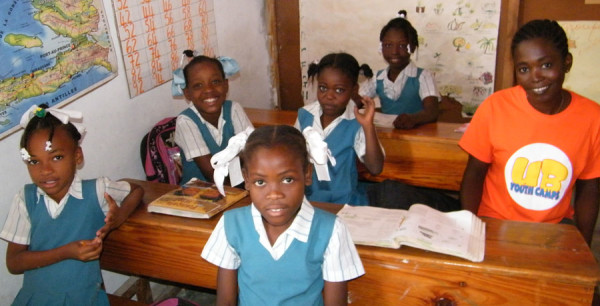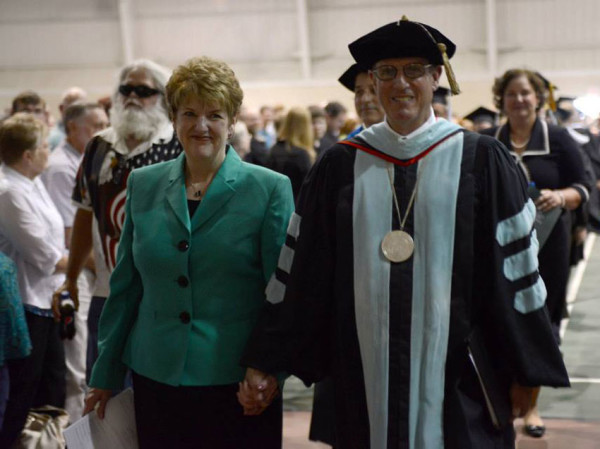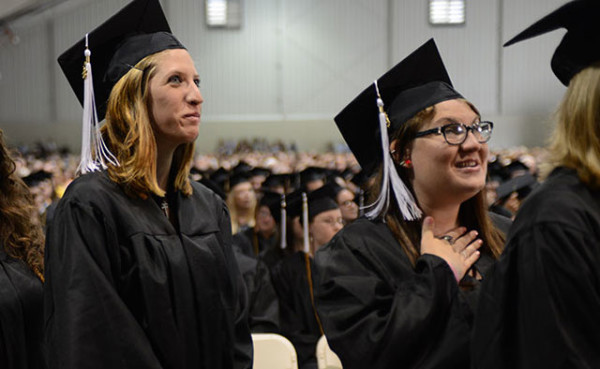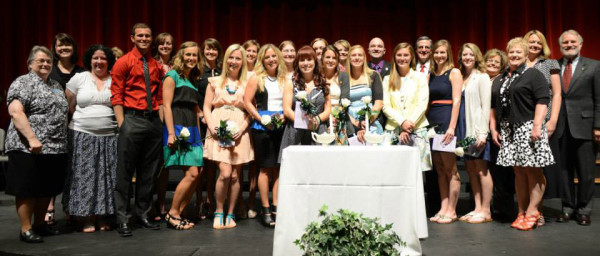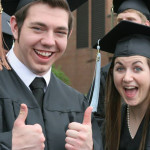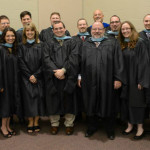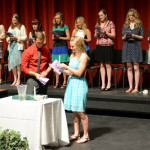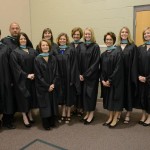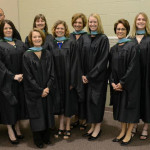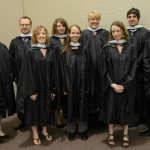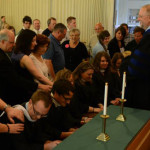31 May Final Day of General Conference
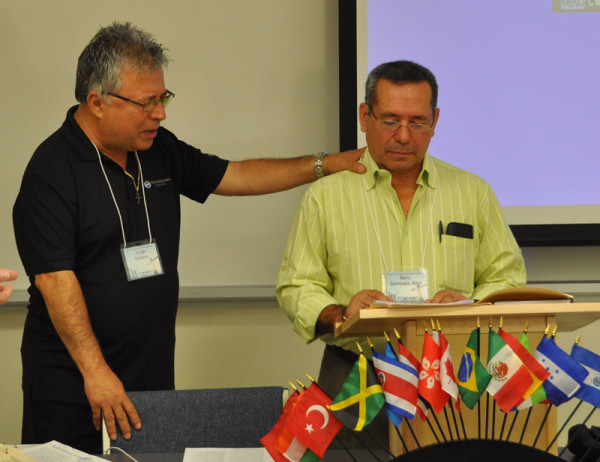
Interpreter Jorge Botero (left) and Gonzalo Alas, superintendent of the work in El Salvador, during the prayer for the El Salvador churches.
The 2013 General Conference is the 51st edition, going back to 1815. For most of that time, it was held every four years. And always in the United States. The only exception was the 1925 General Conference, which convened in Kitchener, Ontario–the site of the 2013 edition. (The 2010 General Conference, of course, was held in Honduras.)
Day 3 of General Conference began with more reports about national conference missions efforts. By noon, they adjourned. Rev. Martin Magnus, a retired minister in Ontario who has been a voting delegate to various General Conferences over the years (and is the father of Canadian bishop Brian Magnus), closed the conference in prayer.
The conference then moved into executive session, which consisted of the highest leader from each national conference (in other words, about half of the delegates).
After lunch, the delegates took an afternoon excursion to a local Christian media company and then to CH Global, the organization with which we partner in various ways in Jamaica.
The evening service was held in nearby Cambridge at the Mill Crossing United Brethren church. This church began in 2005 as a daughter church of Parkwood Gardens UB church in Guelph. Neil and Liz Cudney co-pastor this church.
The beautifully renovated part of an old industrial building. It has the feel of a coffeehouse–very intimate and relaxed.
The Mill Crossing music team led in worship, and did so superbly (with Pastor Neil playing mandolin and banjo). Each of the General Conference delegates were given the chance to introduce themselves and say something to the congregation (which included people from several area United Brethren churches). Then Mill Crossing gave each person a gift, and prayed for them.
Juanita Chavez, superintendent of Honduras Conference, preached, with the help of interpreter Jorge Botero. She sang a song in Spanish toward the beginning, and then concluded by leaping into the deep to sing “Shout to the Lord” in English. She did well, and was helped by the congregation joining her.
Ice cream cake was served afterwards.
On Saturday, a missions conference for all of the Canadian UB churches will be held in the morning and afternoon at Stanley Park UB church in Kitchener. Most of the General Conference delegates will have the chance to speak. Should be a fun day.
- Martin Magnus praying to close the 51st General Conference.
- Jeff Bleijerveld and Yiu Kin Keung heading off on the afternoon excursion.
- Damaris Canales of Honduras (with Jorge Botero) brought greetings to the Mill Crossing congregation in English.
- Gonzalo Alas accepting a gift from the Mill Crossing congregation.
- During the Mill Crossing service.
- Neil Cudney, co-pastor of Mill Crossing, on the mandolin.
- During the Mill Crossing service.
- Hands around the sanctuary at the conclusion of the service.

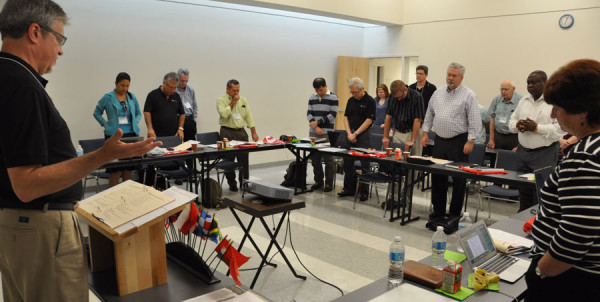
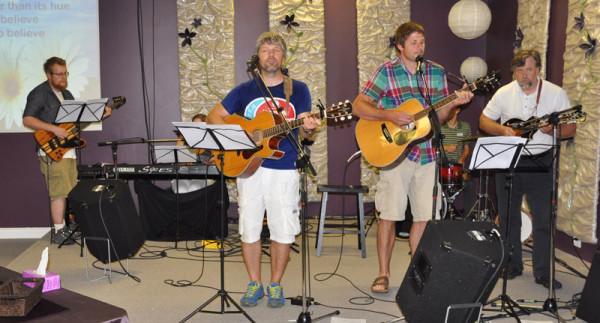
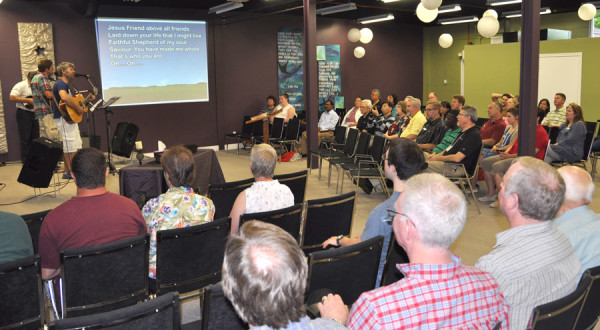
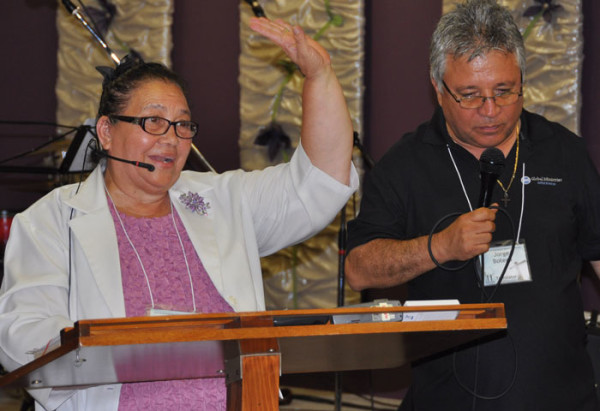
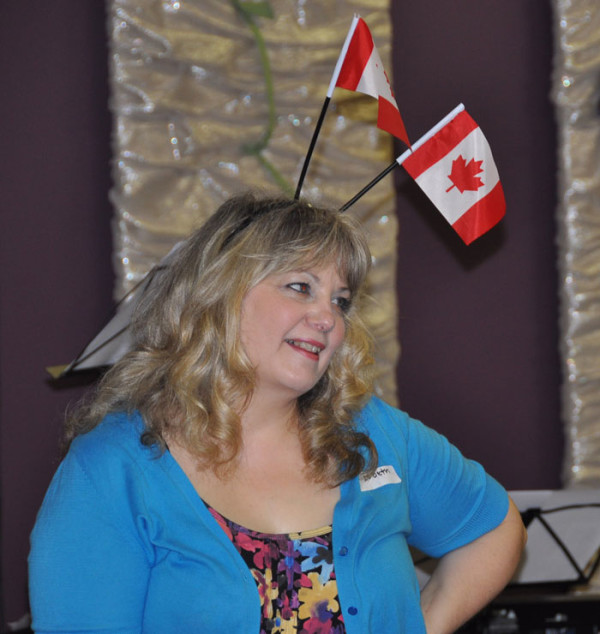
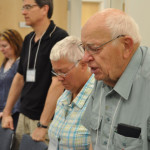
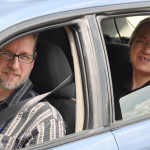
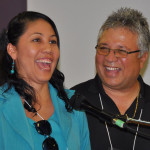
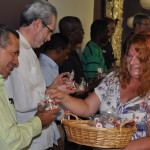
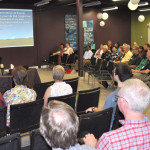
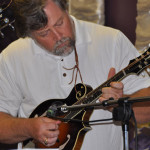
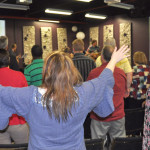
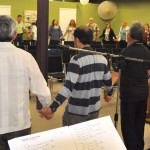

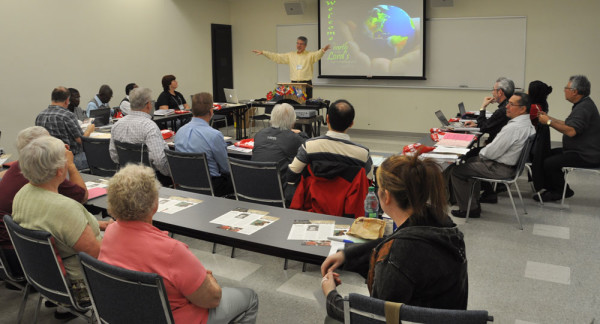
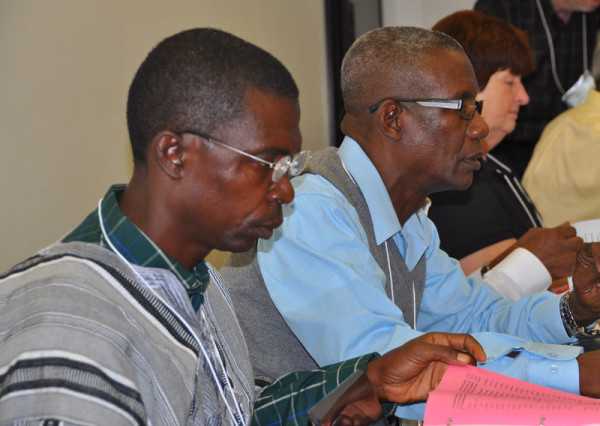
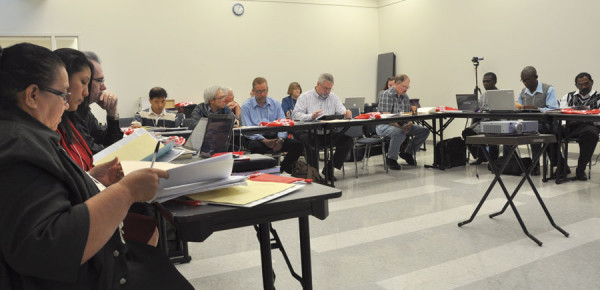
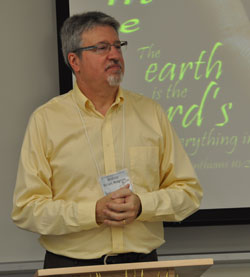
 Jill Van Deusen (right), 70, a former missionary in Sierra Leone, passed away on Thursday, May 23, at the University of Toledo Medical Center.
Jill Van Deusen (right), 70, a former missionary in Sierra Leone, passed away on Thursday, May 23, at the University of Toledo Medical Center.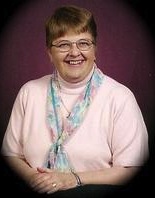
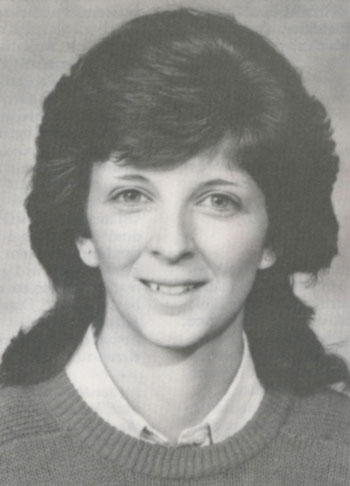 Steve Dennie, Communications Director
Steve Dennie, Communications Director